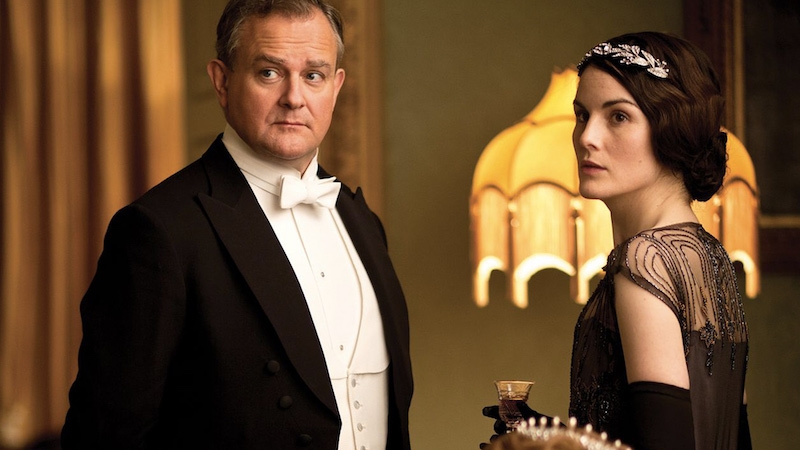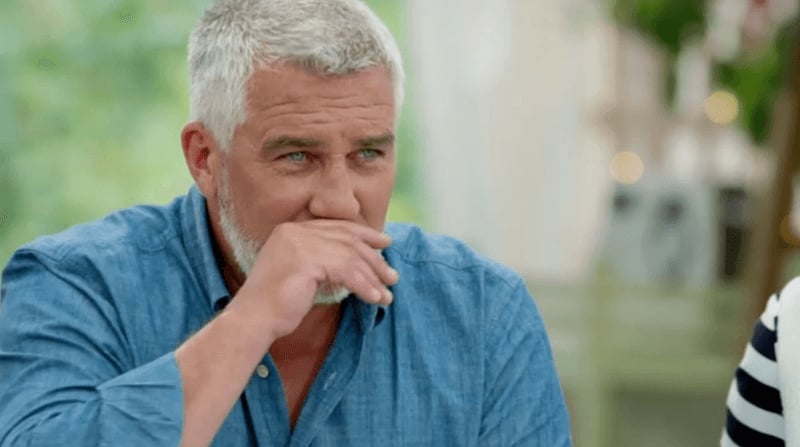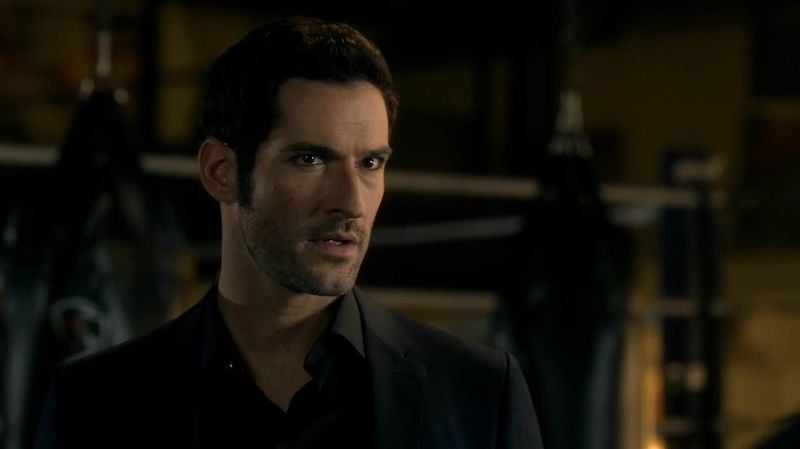Did you know that the British accent was recently voted the sexiest in the world? According to more than 37,000 respondents in the Time Out Index 2020 survey, the British accent earned 25% of the total votes. In fact, it proved to be most irresistible to people living in Asia, especially South Korea, China, and Malaysia. Chalk it up to the influence of British television series or the smooth-talking actors who appear on our screens. But it’s an impressive feat when you can dethrone the French accent — often called the world’s most romantic language and is now knocked off to second place.
Even if we’re not from the United Kingdom, there are some British slang words that we just love to hear roll off the tongue. Here are some of the famous expressions that any Anglophile is bound to recognise, if they don’t know it by heart already.
1. Chuffed

The face of someone who looks very chuffed, indeed. | Image credit: Amazon Prime Video
How to use it in a sentence: “I felt quite chuffed about my new job.”
When you’re extremely delighted or proud of something, you can say that you’re feeling chuffed. More than being happy, it’s also an expression of pride in yourself.
2. Smashing
How to use it in a sentence: “Daphne looks smashing tonight.”
Like complimenting someone in a more suave fashion, “smashing” is the British slang word for when you think something looks extremely attractive or fantastic. It can also mean that you had a wonderful or fantastic experience, or you regard something as a veritable success. Like, you had a smashing time at the party the other night.
3. Rake

is the Duke of Hastings from Bridgerton in a nutshell. But we love him for it. | Image credit: Netflix
How to use it in a sentence: “Simon Basset, the Duke of Hastings, is the ultimate rake.”
Don’t be shocked if this scoundrel regards you so highly that he’ll never lock it down. As Bridgerton’s Regé-Jean Page put it in an interview, a “rake” is a Regency f*ck boy.
Derived from the British word “rakehell,” a rake is the carefree scoundrel who sweeps the heroine off her feet in historical romance novels. He’s charming, sure, but also intriguing and dangerous and given to debauchery. Yet somehow, he’s made more irresistible for the way his carefree “no strings attached” policy makes him look so out of reach.
Also read: Here Are 7 Important Reasons Why People Have Fallen in Love with Bridgerton
4. Knickers
How to use it in a sentence: “Don’t get your knickers in a twist.”
“Knickers” refers to women’s underwear, so we’ll just leave you and your imagination to run with that. But if someone tells you “not to get your knickers in a twist,” they probably think you’re worried over nothing and that you just need to chill out a bit.
5. Plastered
How to use it in a sentence: “Sorry, I went bar-hopping last night and got totally plastered. I don’t remember a thing.”
You’re stumbling on your way home from the pub and barfing on the street — tell-tale signs that you’re “plastered” or extremely drunk. This is just one of many British slang words to describe inebriation; there’s also getting “sloshed,” “rat-arsed,” “pissed,” “shit-faced,” and more.
6. Knackered
How to use it in a sentence: “I’d love to chat with you, but I have to pass. I’m just so knackered right now.”
Don’t get this confused with the other British slang term above! Simply put, the word “knackered” means you’re really exhausted, tired, or worn out.
7. Posh

Downton Abbey follows the lives of the posh Crawley family, who belong to the upper crust of the post-Edwardian era.| Image credit: Amazon Prime Video
How to use it in a sentence: “That fella looks a bit posh with his suits and fancy shoes.”
When it’s used to describe places or objects, the word “posh” means fancy, expensive, and stylishly luxurious. When used to describe a person, it refers to someone who is refined and comes from a high social class in society. The Queen’s English, in particular, is the standard accent that many British actors and actresses use for playing aristocrats and royalty in Downton Abbey and The Crown.
If you need more proof of how a British accent can lend an air of sophistication to dialogue, check out this video of the Downton Abbey cast saying their lines in American accents:
Depending on your intonation, calling someone posh can also be an underhanded insult. Some British celebrities who come from privileged backgrounds, for instance, don’t like to be called posh because they think it suggests they’re out of touch.
8. Wanker

Meet Martin from Fleabag, who got punched in the face at a dinner party for being a wanker. | Image credit: Amazon Prime Video
How to use it in a sentence: “You’re such a wanker, you know that?”
Nobody does swearing like the Brits. If you’ve ever binge-watched a British television series, you’ve probably heard this insult uttered more times than you can count. “Wanker” is the British slang term for a person who is insufferable, frustrating, unpleasant, and just not very smart. Like a catch-all insult for an asshole you can’t stand.
9. Pear-shaped
How to use it in a sentence: “Thanks to Redditors, the hedge fund’s attempt to short squeeze GameStop went absolutely pear-shaped.”
Did a situation go south or spiral out of your control? When an event takes a turn for the worse and it doesn’t bring the favourable result you were hoping for, you can say that things went “pear-shaped.” While we haven’t figured out what this expression has to do with the shape of a fruit, it does make us sound smarter, so we’re keeping it.
10. Taking the piss
How to use it in a sentence: “Are you taking the piss out of me right now?”
Not literally pissing on someone, of course, but making fun of a person or mocking them. In modern-day parlance, this phrase is sometimes thrown around between friends without intending to harm someone: “Hey, we’re just taking the piss, man.” Or posed as a question, it can sound a lot like: “Are you trying to make a fool of me?”
11. Rubbish

Paul Hollywood probably thinks of some of the baking failures in The Great British Bake-Off. | Image credit: Channel 4
How to use it in a sentence: “I don’t ever want to watch that movie again in my life. It’s rubbish.”
For when you want to say “well, that’s dumb” or “that’s crap” in British slang, the word “rubbish” just means that an object is terrible, low-quality, or a piece of garbage. Meaning it’s so bad that someone should get rid of it. Alternatively, it can be used to refer to nonsensical talk or a piece of writing that is simply untrue.
12. Bloody

Take a drink every time you hear Lucifer Morningstar say “bloody hell.” | Image credit: Netflix
How to use it in a sentence: “That’s a bloody brilliant work of art!”
In British slang, “bloody” is a bit like the word “very,” which adds stress or importance to the word that comes after it. Nevertheless, it has a wide range of uses and applicable contexts. For example, you can use it as a mild expletive to express frustration or exasperation: “Oh bloody hell, not again.” It can also be full of spite: “You’re a bloody coward.” Or condescension: “It’s not bloody Shakespeare.”
From effusive praise (“That’s bloody brilliant”) to feeling incandescent with rage (“BLOODY HELL!” –Gordon Ramsay, probably), saying “bloody” is all in the delivery.
Also read: 10 Reasons Why You Should Learn The Local Language Before A Trip
It looks like our steady diet of British television shows paid off. How many of these British slang words and their meanings did you guess correctly?
Featured image credit: Netflix




